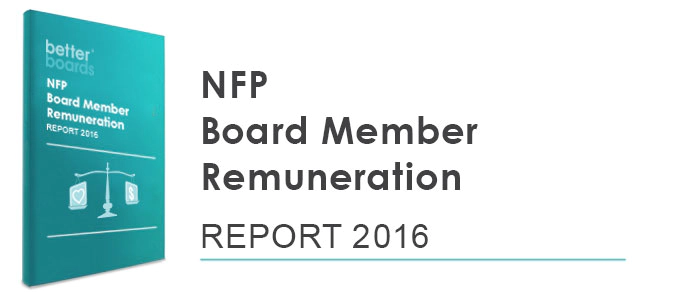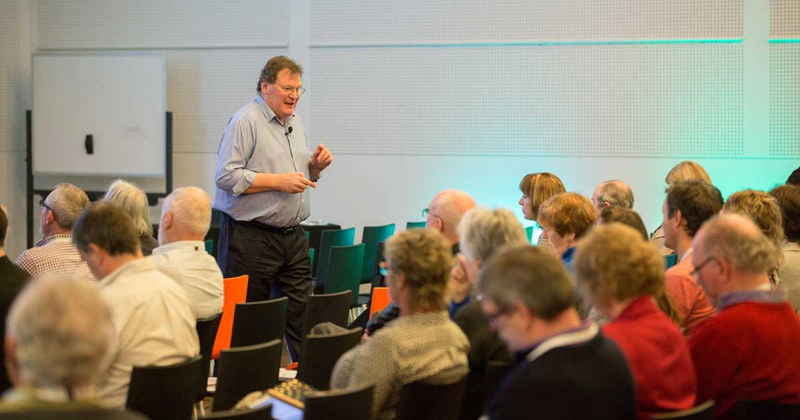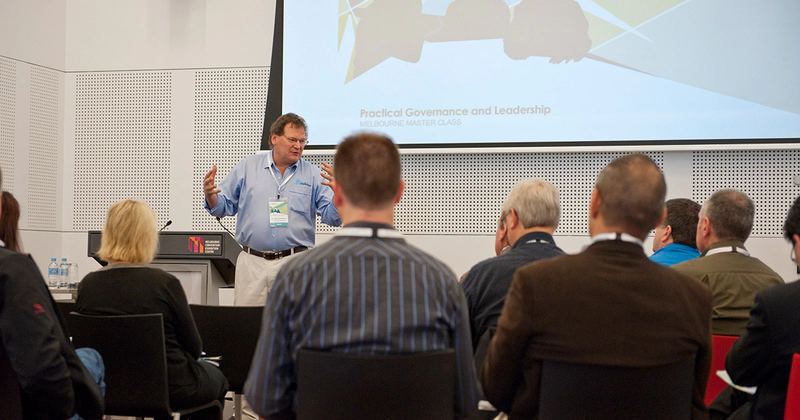governance
Gavin Nicholson on Why Processes Really Matter
Published: April 11, 2016
Read Time: 2 minutes
In this video, Gavin Nicholson – Associate Professor at the QUT Business School – examines how testing underlying assumptions and instituting better processes can subvert poor decision-making.
Transcript
This is a very abstracted kind of decision that I’ve got here, but I really wanted to make the point that you can have all the information in the group and still make a bad decision, depending upon how you make the decision, the actual process. So, here we have a decision, right? Let’s say we’re a not for profit and we want to know should we pursue a new line of work or a new argument, right? That’s the decision we want. Okay. Well, let’s say there’s two conditions.
There has to be a need for what we’re going to produce. And we have to be able to raise enough donations. If we have a need and we raise enough donations, we should pursue the opportunity. Fairly simple decision, yes?
So, Director 1 says, “Yes, there’s a need. Yes, there’s donation. Yes, we’re right.” Director 2 says, “Well, I don’t think there’s a need, but we can get donations, so we shouldn’t.” Director 3 says, “Well, I think that there’s a need, but I don’t think we can raise donations. Therefore, we shouldn’t.”
And just assume that these directors, there’s uncertainty, but on the whole, these directors are right most of the time. So, where you see a yes… Where you see two yeses in a row, they’re right. Okay. Imagine that. Now, if this board just has a discussion, “Should we pursue this opportunity? Two to three? No, we shouldn’t pursue it. If instead the board approaches the decision, is there a need? Yes, there’s a need. Can we get donations? Yes, we can. Well, if we have a need and we have enough donations, we should pursue the opportunity. They’ll end up in a different decision.
This is why one of the key pressures, I think, coming perhaps from the law, but also you should really be thinking about is testing your underlying assumptions. Right? It’s not about so much rethinking what management is doing, et cetera. It’s actually, you can get a different outcome, particularly when you have uncertainty and different views, which is often what we want in a board of directors.
Share this Article
Recommended Reading
Recommended Viewing
Author
-
Associate Professor
Queensland University of Technology
- About
-
Gavin is an experienced director, governance researcher and board consultant. He has provided advice on corporate governance and strategy to listed and large public companies, government owned corporations, statutory authorities, not-for-profit organisations and local government. Gavin heads several large research programs aimed at understanding how to help boards make better decisions. He has published extensively in a range of leading journals in his field and currently serves on the editorial board of Corporate Governance: An International Review and co-authored a number of best-selling books with Prof Geoff Kiel including the practitioner-focused title “Directors at Work”. Gavin is an active director and at the time of writing Chairs the board at Cannon Hill Anglican College (CHAC).
Found this article useful or informative?
Join 5,000+ not-for-profit & for-purpose directors receiving the latest insights on governance and leadership.
Receive a free e-book on improving your board decisions when you subscribe.
Unsubscribe anytime. We care about your privacy - read our Privacy Policy .










